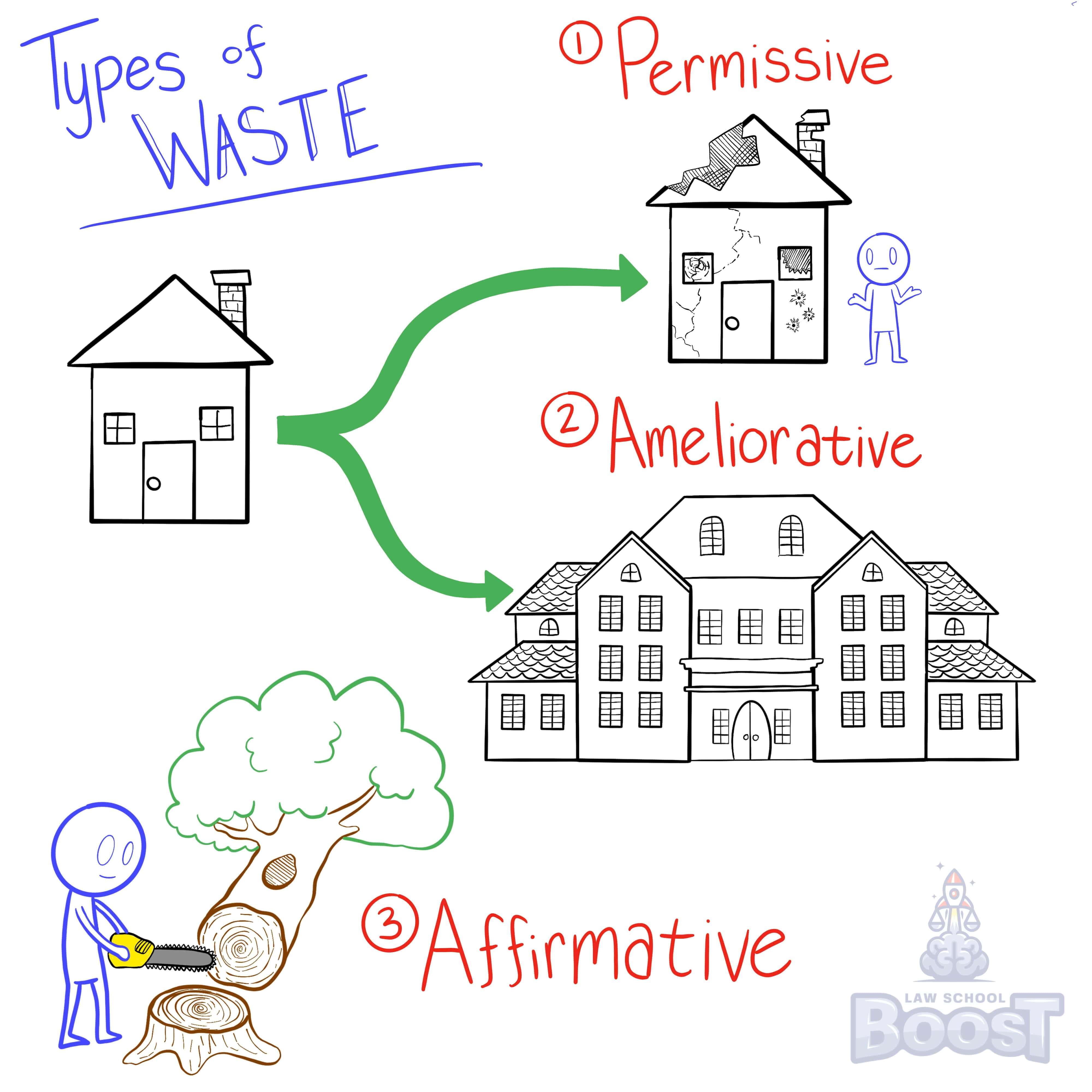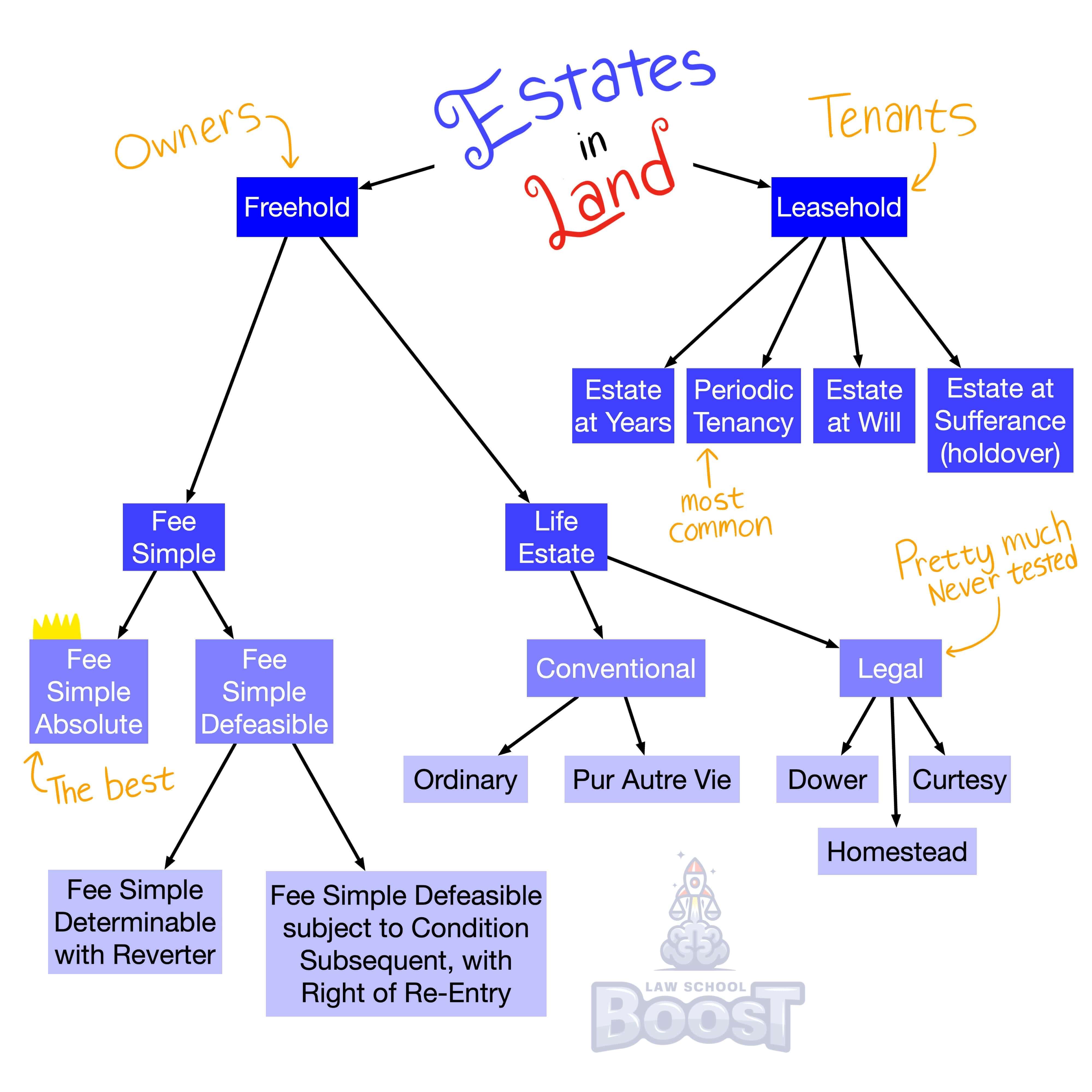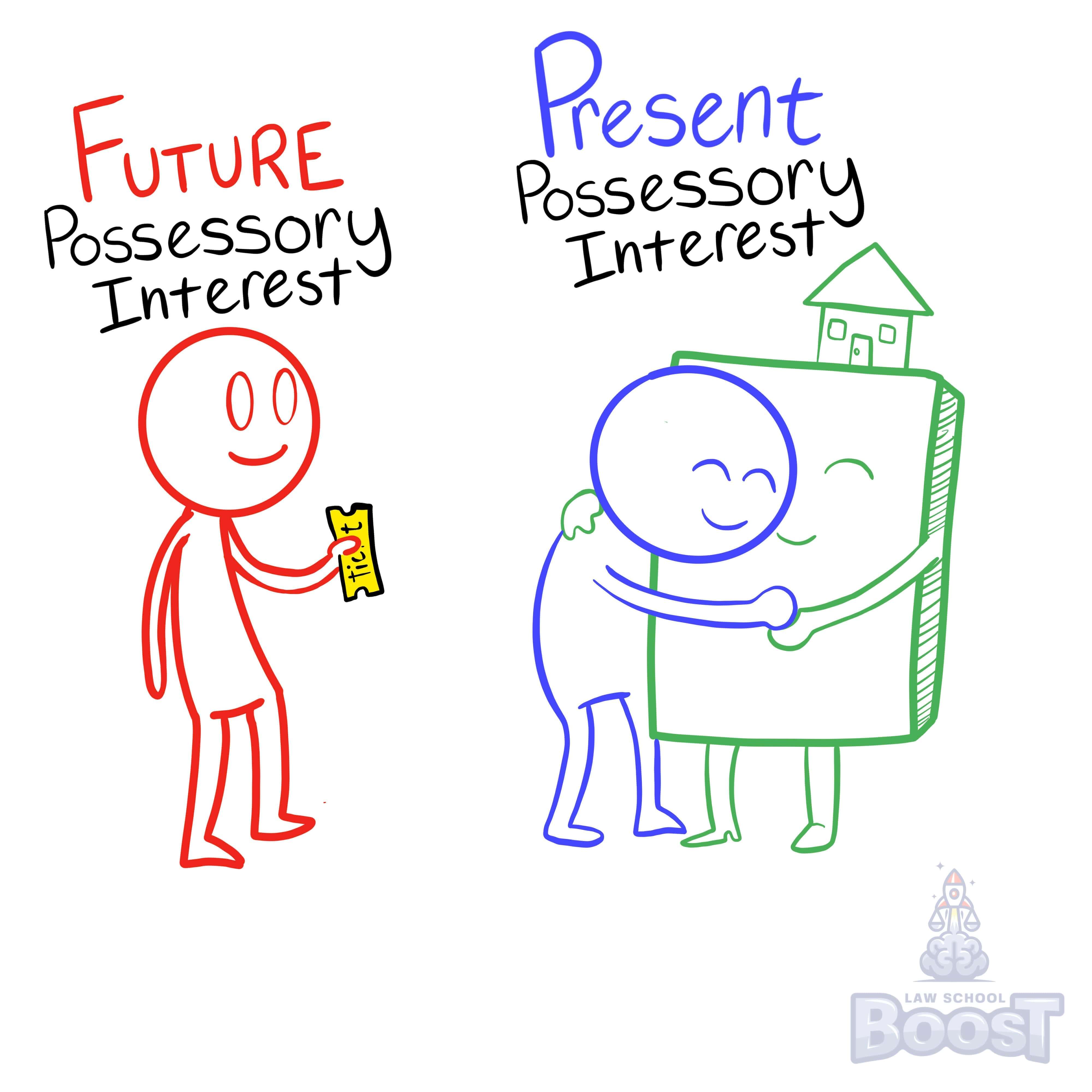😀
Real Property • Present Possessory Estates
PROP#015
Legal Definition
Permissive waste occurs when a life tenant breaches their duty or obligations to maintain a property. A life tenant has an obligation to: (1) preserve the land and structures in a reasonable state of repair; (2) pay interest on mortgages; (3) pay ordinary taxes on the land; and (4) pay special assessments for public improvements of short duration (apportioned if long). This duty is limited to the extent of the income or profits generated from the land (or its reasonable rental value). There is no obligation to insures the premises, and the estate holder is not liable for damages caused by a third party tortfeasors.
Plain English Explanation
A life estate is only temporary ownership, even if it lasts a lifetime. The law wants to make sure that the people who have dibs on the land after the life estate is over get the land back in a condition that is nearly identical to that which the life estate owner had.
Permissive waste occurs with a life estate holder permits (i.e., allows) damage to happen to the land. In contrast, while affirmative waste is waste that the life estate holder personally causes, permissive waste is waste that a life estate holder allows to happen.
In other words, there are always costs to ownership.
Physically, things begin to degrade with time. Roofs need replacing, homes need repainting, structures need care to ensure pests and termites don't take control. If a life estate holder ignores their property for too long and lets it go to hell through their laziness and negligence, people with future interests in the land have a right to sue and be reimbursed for the cost of such waste.
Legally, there are many costs that are associated with owning land. If they have a mortgage, then its interest must continue to be paid. Likewise, property taxes must be paid, as do certain specialty taxes that are imposed (like when they want to build a school or sewer system). In other words, a life estate isn't a free ticket to enjoy land. You are responsible for the land, and have a duty to others with an interest in the land to not cause financial problems or even lose the land to the government via failure to pay taxes.
Note that the out of pocket expenses for these duties is limited by the actual income made from it (how much money is generated from the property), or the potential income that could reasonably be made (how much money could be generated if the land was rented to someone else). In other words, if the land only generates $10,000 per year in income, you would only be expected to spend no more than $10,000 per year maintaining the land and preventing permissive waste.
Permissive waste occurs with a life estate holder permits (i.e., allows) damage to happen to the land. In contrast, while affirmative waste is waste that the life estate holder personally causes, permissive waste is waste that a life estate holder allows to happen.
In other words, there are always costs to ownership.
Physically, things begin to degrade with time. Roofs need replacing, homes need repainting, structures need care to ensure pests and termites don't take control. If a life estate holder ignores their property for too long and lets it go to hell through their laziness and negligence, people with future interests in the land have a right to sue and be reimbursed for the cost of such waste.
Legally, there are many costs that are associated with owning land. If they have a mortgage, then its interest must continue to be paid. Likewise, property taxes must be paid, as do certain specialty taxes that are imposed (like when they want to build a school or sewer system). In other words, a life estate isn't a free ticket to enjoy land. You are responsible for the land, and have a duty to others with an interest in the land to not cause financial problems or even lose the land to the government via failure to pay taxes.
Note that the out of pocket expenses for these duties is limited by the actual income made from it (how much money is generated from the property), or the potential income that could reasonably be made (how much money could be generated if the land was rented to someone else). In other words, if the land only generates $10,000 per year in income, you would only be expected to spend no more than $10,000 per year maintaining the land and preventing permissive waste.
Visual Aids



Related Concepts
How is a fee simple determinable created?
How is a fee simple subject to condition subsequent created?
In assessing a present possessory estate, what is affirmative waste?
In assessing a present possessory estate, what is ameliorative waste?
What are the 3 types of waste a life estate holder may commit?
What are the present possessory estates?
What happens when a life estate holder renounces his interest?
What is a defeasible fee?
What is a fee simple absolute?
What is a fee simple subject to executory interest?
What is a fee tail, how is it created, and what is the result of its creation in most jurisdictions today?
What is a life estate?
What is a life estate pur autre vie and how is it created?
What rights and duties do the holder of a life estate have?
What will a court do if it is not clear whether someone intended to create a fee simple determinable or subject to condition subsequent?


